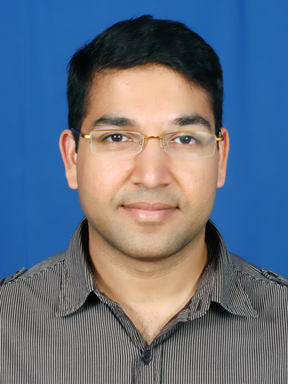The fast adoption of the fifth generation (5G) technology is promising a staggering number of new devices. The exponential growth in connected devices, the support of different services and use cases along with the introduction of 5G and beyond technology is expected to cause a challenge for the efficient and reliable use of radio/network resources and/or functions.
To tackle this challenge, enable a high-level flexibility, and cope with the increasing network complexity, novel solutions must be developed to ensure security, reliability, and service guarantees in a dynamic and trustworthy way. In this context, the use of Artificial Intelligence (AI) and Machine Learning (ML) as key enablers for future networks have been recognized at global level (e.g., NGMN, ITU, 5G IA).
Despite the hype of the last few years, a lot of work is still needed to identify problems within 5G and beyond that can benefit from AI/ML, develop the most suitable solutions for these, and ensure the availability and usability of data sets for testing and verification of the proposed AI/ML solutions.
Motivated by ongoing activities around these topics, this session aims to bring together leading experts from industry and academia to share their perspectives on opportunities and challenges to the application of AI/ML-driven solutions in 5G and beyond technologies. The session will provide a unique forum for practitioners and researchers to exchange their experiences from recent developments, the evolving landscape of AI/ML technologies, and expected business benefits.
Speakers
 Brigitte Jaumard, Concordia University
Brigitte Jaumard, Concordia University
Brigitte Jaumard is a professor in the Computer Science and Software Engineering (CSE) Department at Concordia University. Her research focuses on mathematical modeling and algorithm design (large-scale optimization and machine learning) for problems arising in communication networks, transportation and logistics networks.
Recent studies include the design of efficient optimization/machine learning algorithms for network design, dimensioning and provisioning, scheduling in edge-computing and clouds, and 5G networks. During her 2020-2021 sabbatical year, she was a senior advisor for the Montreal Ericsson GAIA research center and a research lead for Ciena, while being the chief scientist of CRIM.
Brigitte Jaumard was ranked among the top 2% of scientists in her field of research according to a 2021 study based on research citations. B. Jaumard has published over 300 papers in international journals in Operations Research and in Telecommunications.
 Karim Ali, CEO InVision AI
Karim Ali, CEO InVision AI
Karim is the founder and CEO of Invision AI, a provider of next generation Artificial Intelligence vision systems that are highly efficient and scalable designed specifically for applications where speed, cost and privacy are paramount. Invision AI enables edge devices, such as remote cameras and other sensors in the field, to interpret the world around them without relying on costly hardware or cloud connections. We provide real-world three- dimensional situational awareness – including 3-D detection, geo-localized tracking across sensors and sensor fusion.
Karim has over 15 years’ experience in the commercial application of machine learning and computer vision. He led development teams at Accenture and CSEM, where he managed, developed and delivered computer vision software to major multi-national corporations. Karim has a dozen academic publications in international conferences and journals and is the author of multiple patents. He holds a Ph.D. in Machine Learning from the Swiss Federal Institute of Technology (EPFL). Prior to founding Invision AI, Karim was a research fellow at the UC Berkeley Artificial Intelligence Research (BAIR) Lab and a visiting scholar at Harvard University.
 Tingfang Ji, Qualcomm
Tingfang Ji, Qualcomm
Tingfang Ji jointed Qualcomm in 2003 and is currently a senior director of engineering in Wireless R&D. From 2003 to 2014, he made instrumental technical contributions towards the development of LTE and LTE-Advanced technology and served as a vice chairman of the radio working group (RAN4) of 3GPP. Since 2014 he has been responsible for the systems group and later all engineer groups of the first Qualcomm 5G research project, which is the main research engine behind Qualcomm’s 5G NR air interface design/standardization efforts, sub6 GHz multi-vendor pre-commercial 5G NR IODT/trials, and the 5G use cases/technologies experimental macro networks. Before joining Qualcomm, Tingfang was a member of the technical staff at Bell Labs. As an inventor, he has more than 800 US patent applications.
Tingfang received his Ph.D degree in E.E. from the University of Michigan, Ann Arbor in 2001, and also holds a B.Sc. from Tsinghua University.
 Dani Korpi, Nokia
Dani Korpi, Nokia
Dani Korpi received the M.Sc. and D.Sc. degrees (Hons.) in communications engineering and electrical engineering from the Tampere University of Technology (TUT), Finland, in 2014 and 2017, respectively. He is currently a Senior Specialist with Nokia Bell Labs, Espoo, Finland. His Ph.D. thesis received the Best Dissertation of the Year Award from TUT, as well as the Finnish Technical Sector’s Award for the best doctoral dissertation in 2017. His research interests include machine learning for wireless communications and 6G radio systems.
 François Leduc-Primeau, École Polytechnique de Montréal
François Leduc-Primeau, École Polytechnique de Montréal
François Leduc-Primeau is an Assistant Professor at École Polytechnique de Montréal since 2019. He received the B.Eng., M.Eng., and Ph.D. degrees in electrical & computer engineering from McGill University, Montreal, Qc, Canada, respectively in 2007, 2010, and 2016. From 2016 to 2018, he was a postdoctoral researcher at IMT Atlantique in Brest, France, and then at École de technologie supérieure in Montreal. His research interests span digital system design, telecommunications, and machine learning, with applications in next-generation wireless communication systems, energy-efficient artificial intelligence, and other low-energy digital systems. He was recently one of the main organizers of the 2021 International Symposium on Topics in Coding (ISTC 2021). He was also an organizer of the Hardware-aware Efficient Training workshop at ICLR 2021. He is a member of the Institute for Data Valorisation (IVADO) and of the Microsystems Strategic Alliance of Québec (ReSMiQ).
 Ali Imran, University of Oklahoma
Ali Imran, University of Oklahoma
Ali Imran is a founding director of the AI4Networks (www.AI4Networks.com) Research Center at the University of Oklahoma where he is Presidential Associate Professor in ECE. His research interests include advances in AI for applications in next-generation wireless networks and healthcare. His work on these topics has resulted in several patents and over 100 peer-reviewed articles including some of the most influential papers in the domain of wireless network automation. On these topics he has led numerous multinational projects, given invited talks/keynotes and tutorials at international forums and advised major public and private stakeholders and co-founded multiple start-ups including AISON.CO. The innovative AI-based solutions offered by AISON help network operators configure, operate, maintain, troubleshoot and optimize their with minimal manual effort while delivering double-digit gains in capacity and quality of service and cost savings. The global impact of his work on network automation has been recognized by several prestigious awards such as the VPR Outstanding International Impact Award at the University of Oklahoma, 2018, IEEE Green ICT International award for best solution 2017, and best paper awards. He is an Associate Fellow of Higher Education Academy (AFHEA), UK; President of ComSoc Tulsa Chapter; Senior Member IEEE, Member of Advisory Board for Special Technical Community on Big Data at IEEE Computer Society, and board member of ITERA. For a more detailed bio see www.ali-imran.com.
